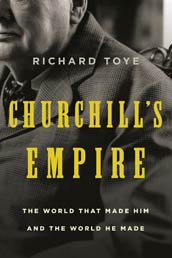- HOME
- INTRO TO THE FORUM
- USE AND MISUSE
- BADLY WRITTEN, BADLY SPOKEN
- GETTING
TO KNOW ENGLISH - PREPARING FOR ENGLISH PROFICIENCY TESTS
- GOING DEEPER INTO ENGLISH
- YOU ASKED ME THIS QUESTION
- EDUCATION AND TEACHING FORUM
- ADVICE AND DISSENT
- MY MEDIA ENGLISH WATCH
- STUDENTS' SOUNDING BOARD
- LANGUAGE HUMOR AT ITS FINEST
- THE LOUNGE
- NOTABLE WORKS BY OUR VERY OWN
- ESSAYS BY JOSE CARILLO
- Why Is The Sentence “It Can Be Overcame” Grammatically Wrong?
- How Finite Verbs Differ From Non-Finite Verbs
- The Need To Avoid Officious Stock Phrases When Writing Or Speaking
- Sounding Profound By Quoting Someone Without Attribution
- Why We Need to Hyphenate Certain Compound Modifiers
- Let’s Come To Grips With The Proper Use Of“However”Once And For All
- ABOUT JOSE CARILLO
- READINGS ABOUT LANGUAGE
- TIME OUT FROM ENGLISH GRAMMAR
- NEWS AND COMMENTARY
- BOOKSHOP
- ARCHIVES
TIME OUT FROM ENGLISH GRAMMAR
This section features wide-ranging, thought-provoking articles in English on any subject under the sun. Its objective is to present new, mind-changing ideas as well as to show to serious students of English how the various tools of the language can be felicitously harnessed to report a momentous or life-changing finding or event, to espouse or oppose an idea, or to express a deeply felt view about the world around us.
The outstanding English-language expositions to be featured here will mostly be presented through links to the websites that carry them. To put a particular work in better context, links to critiques, biographical sketches, and various other material about the author and his or her works will usually be also provided.
I hope you’ll enjoy the new selections that will be presented here.Joe Carillo
The two faces of a remarkable figure in modern world history
One of the towering figures in modern world history is Winston Churchill, the remarkable imperial die-hard who is now largely remembered for his decisive role in leading Britain’s fight against Adolf Hitler’s Nazi juggernaut during World War II. But in a new biography by the young British historian Richard Toye, Churchill’s Empire: The World That Made Him and the World He Made (John Macrae Book/Henry Holt & Company, 423 pages), these dark and disturbing questions are raised: Was Churchill in reality nothing but a dyed-in-the-wool white supremacist who, as a young colonial minister for the British Empire, had gladly taken part in what he called “a lot of jolly little wars against barbarous peoples”? Did Churchill oppose Nazism on moral grounds simply as “a charade, masking the fact that he was merely trying to defend the British Empire from a rival?”

In “The Two Churchills,” a review of Churchill’s Empire in the August 12, 2010 issue of The New York Times, columnist Johann Hari of The Independent in London says that the great, enduring paradox of Churchill’s life is that although he led the charge against Nazism with “some of the richest prose poetry in defense of freedom and democracy ever written,” freedom and democracy were things he actually didn’t want black or Asian people themselves to enjoy. In fact, Hari says in his review of the book, “Churchill lived to see democrats across Britain’s imperial conquests use his own hope-songs of freedom against him.”
According to Hari, Churchill’s Empire beautifully teases out the unsettling ambiguities in Churchill’s attitude towards the other peoples of the world. Although the book recounts that as a youthful colonial minister, Churchill had charged through imperial atrocities and had gladly taken part in raids that laid waste to whole valleys, Hari says that this is not the only Churchill: “The fact that we now live at a time where a free and independent India is an emerging superpower in the process of eclipsing Britain, and a grandson of the Kikuyu ‘savages’ is the most powerful man in the world [a reference to US President Barack Obama], is a repudiation of Churchill at his ugliest—and a sweet, unsought victory for Churchill at his best.”
Read Johann Hari’s “The Two Churchills” in The New York Times now!
Read Piers Brendon’s review of Churchill’s Empire in the Literary Review now!
Read the prologue to Churchill’s Empire in the US.Macmillan.com website now!
ABOUT THE AUTHOR:
Dr. Richard Toye, born in Cambridge in 1973, studied at the universities of Birmingham and Cambridge and is now an associate professor at the University of Exeter. He has written extensively on British and international history. In 2007 he was named Young Academic Author of the Year by Times Higher Education magazine for his book Lloyd George and Churchill: Rivals for Greatness.






